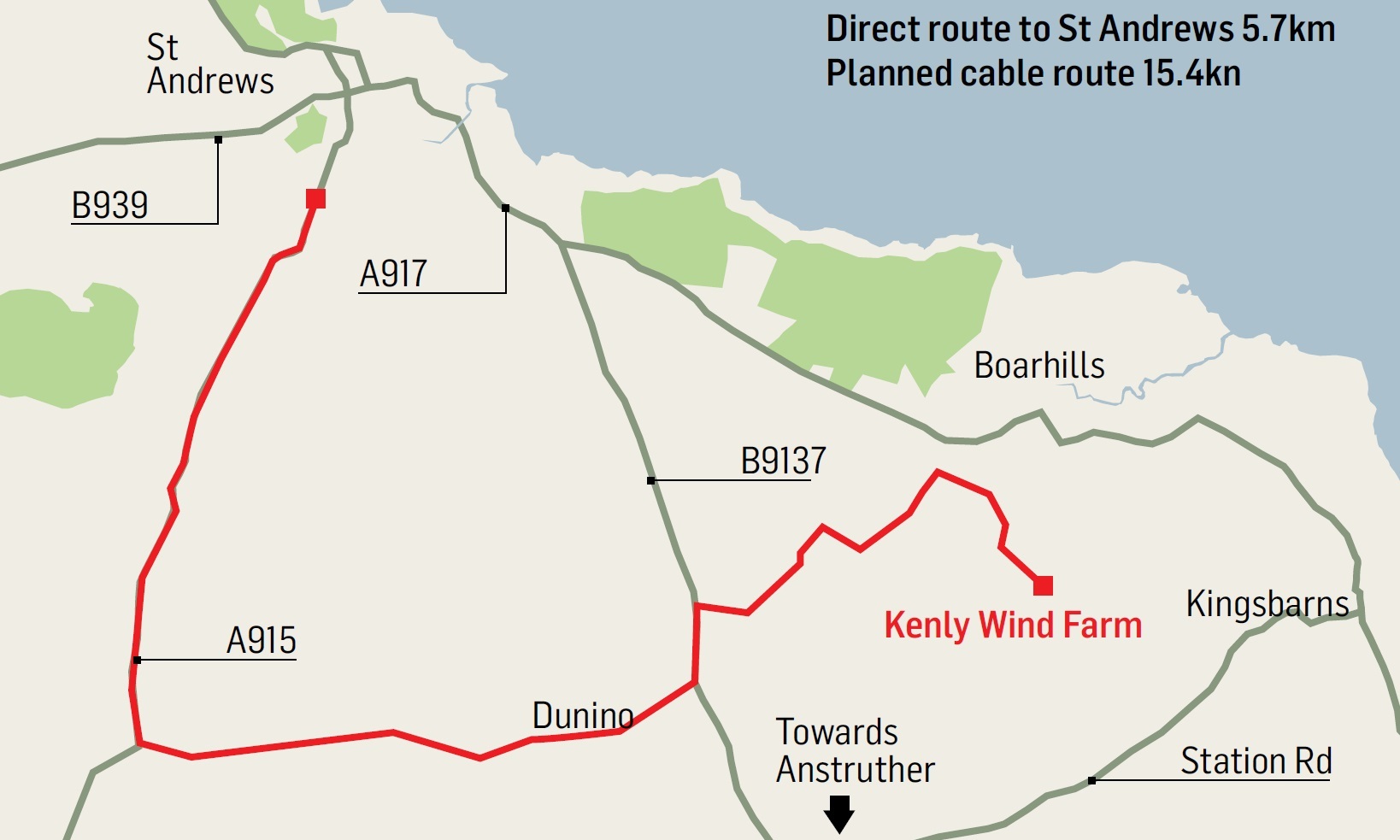Fife’s university has accused councillors of persistent unreasonable behaviour over its proposed wind farm as it fights for grid connection.
The University of St Andrews’ plans for six turbines at Kenly Farm were dealt yet another blow when Fife Council’s north east planning committee refused planning permission for an underground cable.
An appeal has now been lodged with the Scottish Government, which alleges councillors have consistently ignored their own professionals’ advice and demands expenses for the case are footed by the council.
Initially blocked by the same committee, the university won the go-ahead three years ago for creation of Kenly wind farm, a key element of its ambition to become the UK’s first carbon neutral campus.
However, the project has been thwarted at several turns, including a delay in agreeing with the Ministry of Defence how to prevent interference with radar at Leuchars — a stumbling block which the university has previously warned may prevent the 328ft turbines ever being built.
Since December 2012 the university has appealed to the government four times against decisions of the north east planning committee in relation to Kenly.
Another appeal relating to conditions of the turbine consent has been submitted simultaneously with the grid connection appeal.
The university’s agent Jones Lang LaSalle told the government’s Directorate for Planning and Environmental Appeals the latest matters should not have gone to Scottish ministers for determination.
It said: “The committee appear to have ignored the technical and planning evidence before them from the appellant and from the council’s own officer.
“The appellant has been put to considerable unnecessary expense as a result of the unreasonable actions of the council, which is a recurring theme for applications relating to the delivery of Kenly wind farm where officers’ and consultees’ professional opinions are being consistently ignored.”
The university applied for planning consent to run a 33,000 volt cable nine miles underground to carry power for its estates from Kenly, near Boarhills, via Stravithie, Lathockar and the A915 to a substation in the town.
There was a substantial number of objections to the proposal and in August councillors went against planners’ advice and refused consent due to concerns about traffic disruption, residential amenity and what they said was insufficient information about protection of trees.
The university’s appeal claims the route was selected from three options following discussions with council officers, partly because it avoided the busy A917 into St Andrews.
It also argued two assessments had considered impact on trees, which it said would be protected through a construction management plan.
Futhermore, it insisted there would be no significant disruption to residents and there was no evidence that road disruption would be so significant to impact on local businesses.
In September a government reporter overturned a decision of the committee and allowed work short of turbine erection to be carried out at Kenly ahead of radar mitigation measures being agreed.
The council is yet to respond to the appeal and committee chair Councillor Frances Melville declined to comment.










